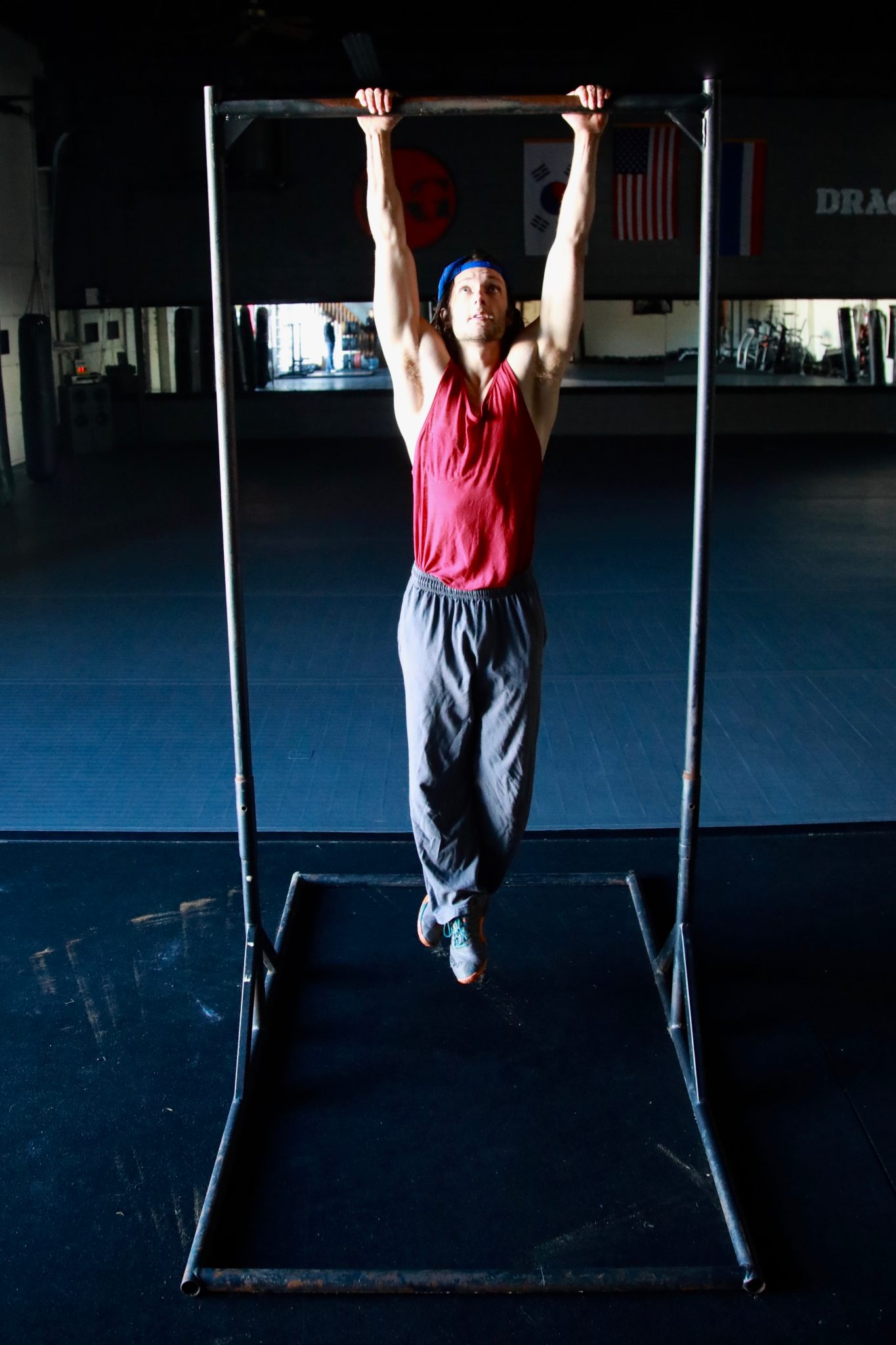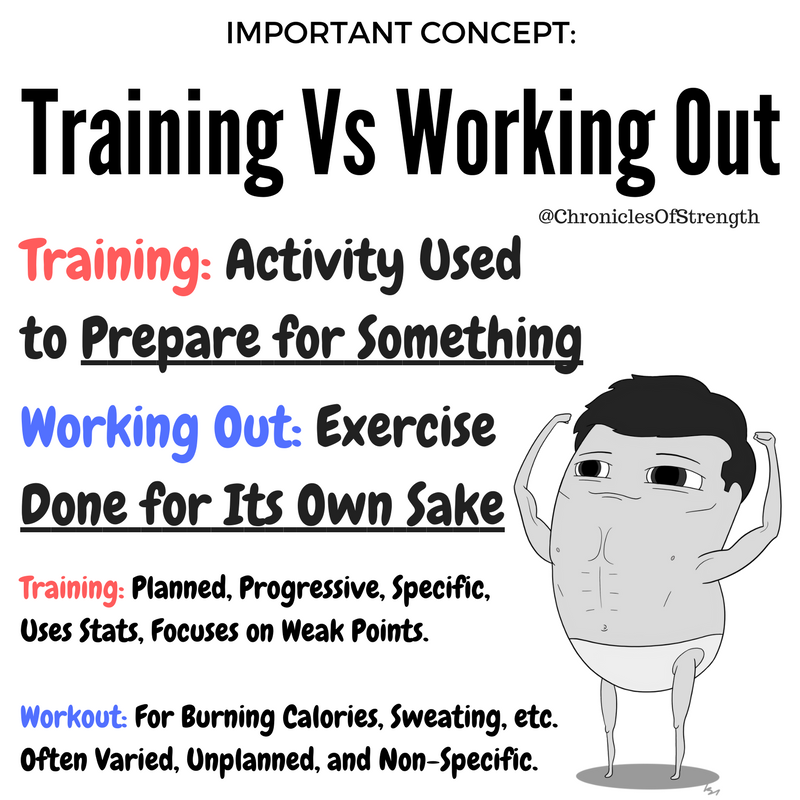Training Vs Working Out – What’s the Difference, Exactly?

[Podcast] Training vs Working Out
– What’s the Difference, Exactly?
OR, ==> CLICK HERE TO DOWNLOAD THE EPISODE.
My old coach used to talk to me a lot about training, how it’s different than working out, and why I needed to pull my head out of–well, you know–if I wanted to get anywhere with all the time I’d been spending at the gym. He could tell I was a sweat-junkie, could see right through me. He’d watch as I’d arrive early and play with circuits and chains, always doing something crazier and more thoughtless than before in terms of how hard it looked like I was training. Only, I wasn’t training, at all. I was working out.
He said, listen kid, I get that you want to have a good workout, but having a good workout doesn’t mean you’re getting better; it just means you’re burning calories. Do you want to know how you know if you’re getting better? I said I would, in fact, like to know how to know if I’m getting better. He said it’s simple: Are you better?
I said I wasn’t sure. He then asked if I was able to lift more weight or stretch further or hold a handstand longer? I said I don’t actually think so. And he said, well, OK: Maybe it’s time to stop working out, and start training.
I asked what the difference was, and he said the difference is simple to explain: Training is about the incremental, specific improvement of a thing. Training is practicing something in a progressive and periodized way; it’s structured; regimented; planned out. It isn’t haphazard or chaotic. And it may or may not involve breaking a sweat, feeling sore, etc.
He said there isn’t anything wrong with working out, if what you want is to burn calories. But if all you want is to burn calories you might as well play basketball or go on a whale hunt. At least do something more entertaining than exercise.
I said well what if I just like to exercise? And he said that’s fine, but why not get more out of it? Why not workout after you’ve trained, that way you’re improving and still getting those special feelings you like, of having had a “good” workout?
He said training and working out don’t have to conflict, but there does need to be a priority. If you want to get better at something you need to treat it as practice–that’s training. You need to focus and concentrate and have persistence and patience and all those kind of things. You need to take advantage of rest and you need–more than anything–to employ progressive overload. (You also need to assess weakness.) You can’t just keep doing the same things over and over. You need to increase the demands, since that’s what the body adapts to. You need to lift heavier, do more sets, stretch more often, and get used to being upside down. Just mixing and matching exercises into a circuit isn’t training. That’s working out.
I said but what if I just like doing circuits? He said circuits are fine for conditioning, and conditioning can be a part of training, but training isn’t just conditioning. Training is the planned, structured, regimented approach to improving something in a controlled environment, so you may someday bring it into an uncontrolled environment, like a competition or a show or what have you–maybe even just real life.
Train if you want to get better at something. Workout if you want to fatigue the muscles.

So, he said you need to be clear on what you’re training for, and the best way to go about it. Sometimes you train to lift a certain weight or do a certain exercise. Nobody does a freestanding handstand push up without training for it–even if they don’t train all that efficiently, they’re still training for something. Other times you train to do things better outside of the gym, like wrestling or Jujitsu. Either way you train strength differently than you train conditioning than you train mobility than you train handstands, and so on. But for none of these things should your approach be unthought-out. You need to think. And you need to plan.
The simplest way to put it, he said, is this: Training is activity used to prepare for something. Working out is exercise done for its own sake.
Know the difference.
Strong ON!
– Pat
Related Resources
Strong ON! – Our premier Generalist training program (that is, training to become better than most people, at most things.)
The Pat Flynn Show
If you enjoyed this episode, it would mean the world to me if you could subscribe to, and leave a review for, The Pat Flynn show on iTunes HERE or Stitcher HERE.
Reading your reviews and hearing your feedback is what keeps me fired up to make The Pat Flynn Show happen. Thank you!